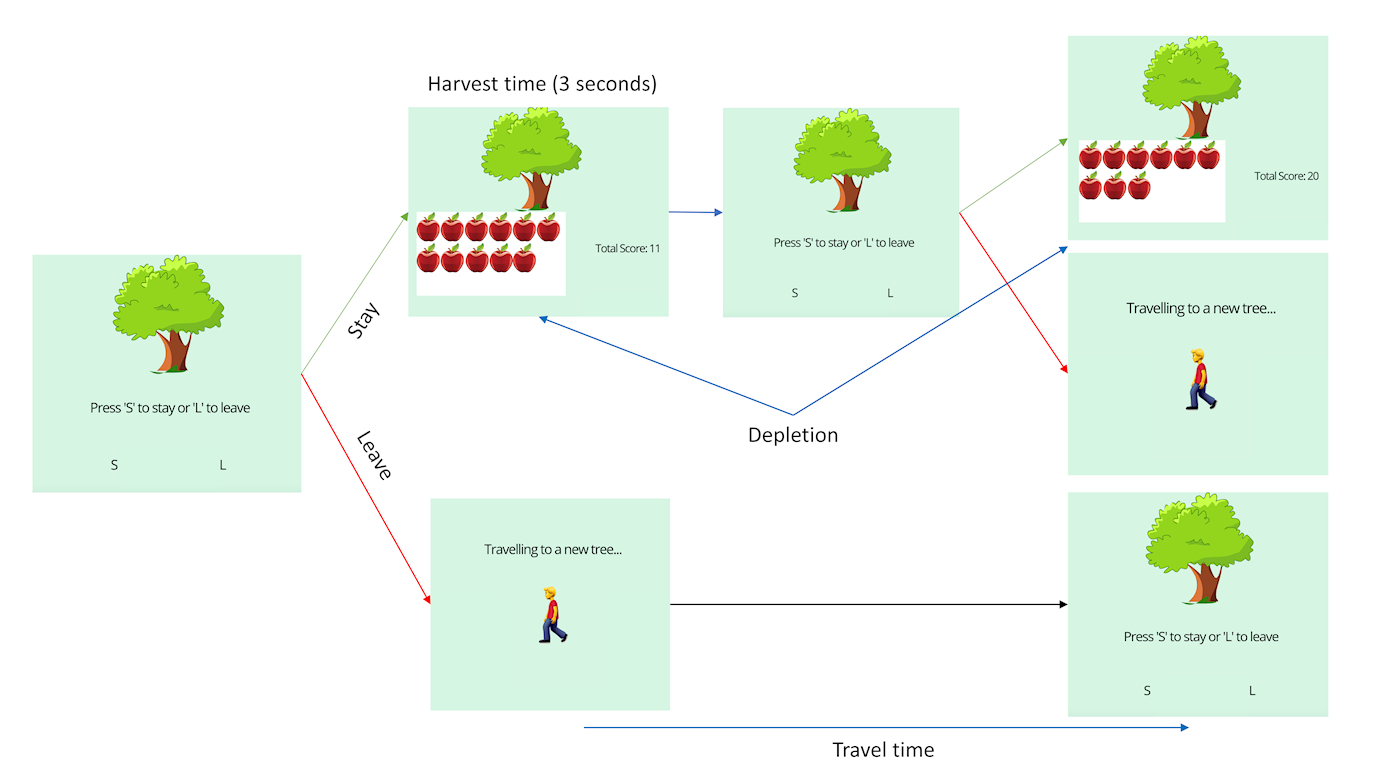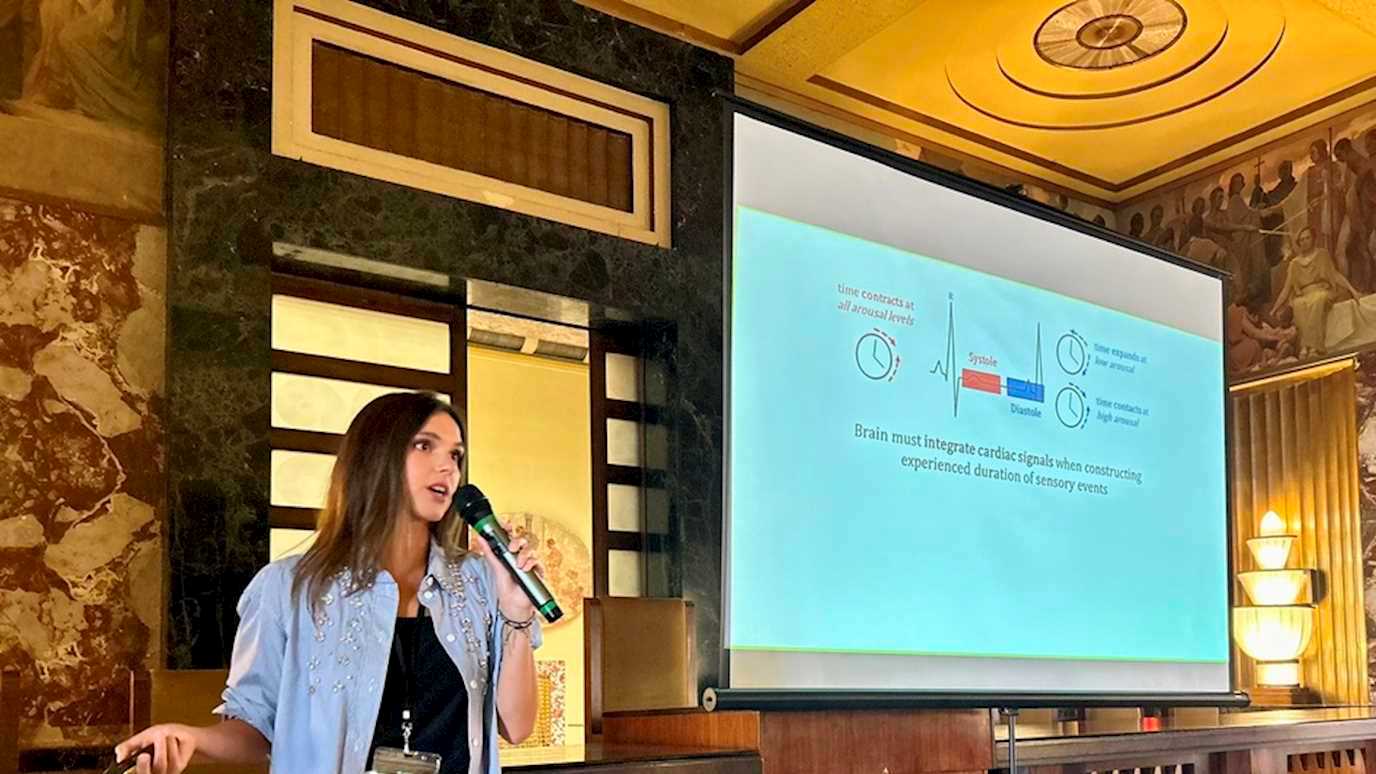New research from RHUL researchers Alex LLoyd, Prof Ryan McKay, Dr. Catherine Sebastian, and Dr. Joshua Balsters investigates how teenagers make decisions in new environments.

Illustration of the foraging task
Adolescence, for many of us, is a time of exploration. While a great deal of research has framed adolescence as a time of excessive risk-taking, recent theories have suggested that increased exploration in adolescence helps us to gain the knowledge and independence we need for adulthood.
Exploration isn’t just important for teenagers, however. Human beings have used exploration for thousands of years to collect the food necessary for survival. For example, hunter-gatherers foraging for berries had to explore their surroundings for bushes containing food to pick. Knowing when you should save your energy and give up on collecting that last hard-to-reach berry and find the next bush is known as the ‘explore/exploit trade-off’. Knowing how to spend time effectively to either stay collecting berries (exploiting) or leaving to find new bushes (exploring) has been important for our survival as a species. However, previous research has found that adults are typically quite bad at knowing the right time to leave bushes, preferring to exploit for too long and explore too little.
A recent paper by Alex Lloyd, Prof Ryan McKay, Dr Catherine Sebastian and Dr Joshua Balsters examined whether adolescents’ tendency to explore more than adults would make them better foragers. They developed an apple picking paradigm where participants had to collect as many apples as possible from trees within the time limit. Participants had to decide between staying with their current tree, which had fewer apples to collect over time or to explore a new one, which would have a fresh set of apples to collect.
They found that adolescents did explore more than adults, and this meant that they collected more apples throughout the task. When comparing participants to the ‘optimal forager’ who would know exactly when to leave each tree, they found that adolescents were closer to this optimal foraging behaviour. These findings refute the idea that exploration in adolescence always leads to negative outcomes. Instead, allowing adolescents to explore new scenarios can help them to learn to effectively navigate their surroundings. This may help them gain the experience to transition from dependent children to independent adults.
Reference: LLoyd, A., McKay, R., Sebastian, C.L., Balsters, J.H. (2020). Are adolescents more optimal decision‐makers in novel environments? Examining the benefits of heightened exploration in a patch foraging paradigm. Developmental Science e13075. https://doi.org/10.1111/desc.13075























